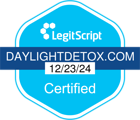A day in rehab
- Home
- A Day In Rehab
Rehab programs for drug and alcohol addiction
Many people find the idea of entering rehab for drug or alcohol addiction quite intimidating. It’s completely normal to feel anxious about the unknown. However, there is truly nothing to fear! In fact, this moment marks an exciting turning point in your life. By choosing to enter rehab, you have taken the crucial first step in addressing substance use disorder and embracing a healthier lifestyle.
What should I expect?
First and foremost, you are not on lockdown during rehab. In fact, no one enters rehab with the intention of using drugs or alcohol again. Therefore, patients have the freedom to leave whenever they choose. Why is this important? Patients in a residential rehab program have made a commitment to work towards recovery. Everyone brings their own story, struggles, and reasons for turning to drugs and alcohol as coping mechanisms. Ultimately, all patients in a residential rehab program share a common goal: living a fulfilling life free from the burdens of substance abuse.
Medical detox
This is the first, and the most intensive, level of care. Medical detox is the process of removing all drugs, alcohol, and toxins from the body. This is the time when patients experience the strongest withdrawal symptoms. For this reason, patients are under 24-hour medical supervision for their safety. The medical team will closely monitor patients during this level of rehab care. Comfort medications are provided to help alleviate any temporary discomfort a patient may experience.
Residential treatment
Residential level of care is the next step in the treatment process. Treatment facilities range from basic living settings to luxury living settings. A typical patient will choose a residential treatment facility based on what they can afford, what their insurance covers, and the specific amenities offered at the facility.
Counseling and group therapy
While attending rehab, patients receive individual and group therapy sessions and counseling. These sessions aim to help individuals acclimate back into society. Patients identify people and situations that have fueled their addictions and learn new, healthier coping tools.
Education
Education is a core component of any addiction treatment program. Those in early stages of recovery find the skills taught to them in residential treatment programs invaluable. Patients learn how drugs and alcohol affect their bodies both physically and emotionally. Relapse prevention education is a key component of any rehab educational program.
Family
Those familiar with the addiction treatment industry know all too well that addiction does not only affect the addict – it affects the addict’s entire family. Family meetings are strongly encouraged so members of the family understand that treating addiction cannot be accomplished alone. Research indicates that including family and close friends in any treatment program significantly improves rehab outcomes for the individual being treated (Gans, 2019).
Aftercare
Residential drug and alcohol treatment programs typically last between 21 to 28 days in duration. This ensures that the patient remains in a structured environment, free of drugs and alcohol. Aftercare plans may include residence at a halfway house, Intensive Outpatient Programs (IOPs), regular attendance at 12-Step meetings, and routine check-ins with your sponsor.
We welcome the chance to serve you
You will discover our philosophy is deeply grounded in dignity, compassion, innovation, and long-term success. We believe that parents and loved ones are an integral part of each patient’s recovery and that it is our duty to provide the tools and education to live a free and fulfilling life.


